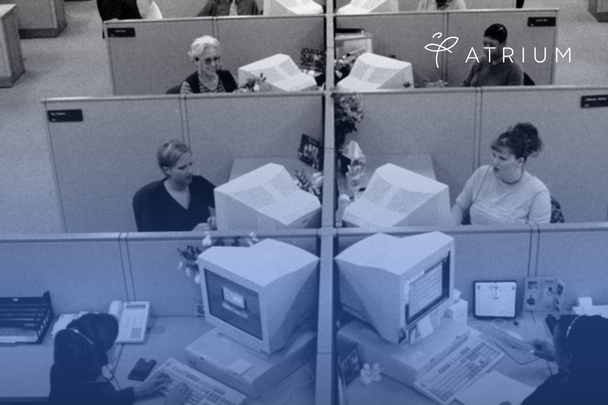As the second wave of Covid-19 dominates world news, many of us have been personally experiencing an increase in anxiety. You may have even witnessed friends or family feeling depressed about the current situation. During a crisis, our mental state can be an additional obstacle. According to a recent study by JAMA Network, the prevalence of depressive symptoms in the US is more than 3 times higher during the COVID-19 crisis than before the pandemic. Additionally, Statista Research Department found that over 28 percent of workers report an inability to regulate their attention when working since the coronavirus outbreak.
Sadly, with the constant barrage of dark scenarios flooding the daily news and evolving issues in the workplace, our minds tend to get trapped into negative thinking patterns. This often prompts your brain to generate ‘fear.’ In return, the way you assess the situation narrows. It makes harder to see the potential professional opportunities in front of you. One way to overcome this negative tendency is by building mental toughness. To put professional resiliency into perspective, let’s explore the ways by which you can boost yours in these dire times.
What is Resilience and Why Does it Matter?
According to Psychology Today, resilience is a psychological quality that enables people to fight back to their best after being knocked down by the adversities of life. When faced with difficult situations, many people tend to feel discouraged and stop moving towards their goals. On the other hand, highly resilient individuals find a way to heal from emotional distress. They come out even stronger than before.
You are bound to face different blows when it comes to your career. While resilience is a soft skill, it nevertheless remains a crucial skill to master. And you must maintain it to be professionally successful. Learning to be resilient can push you through challenging times in your career such as losing your job. It can also inspire you to reach for long term objectives, even if the road is full of obstacles. Developing your resilience grants you a psychological shield that gives you the ability to tackle imperfect situations with confidence.
How to develop and maintain your professional resiliency during Covid-19:
1. Take care of yourself.
A healthy mind starts with a healthy body. Adequately eating and hydrating your body is critical to achieving professional resiliency. In a recent study, researchers from Deakin University found that a healthy diet drastically reduces depression symptoms. Eating the right foods and increasing the intake of certain nutrients can considerably increase your energy levels. This makes you more apt to deal with stressful challenges that may come your way.
Additionally, sleep is essential for both our physical and mental health. Yet, since the COVID-19 outbreak, many people are fighting a serious loss of sleep. As outlined by Angela Drake, a UC Davis Health clinical professor in the Department of Psychiatry and Behavioral Sciences, there has been an alarming increase in insomnia rates following the coronavirus pandemic.
Establishing healthy sleep routines can help if you are facing insomnia in these challenging times. Try to go to bed around the same time each night. You may also want to avoid going over news channels before going to bed. Keeping your body in optimal condition leads to a healthy brain. When your mind is in tip-top condition, you have greater control over your thoughts and emotions.
2. Train your brain to focus on positivity.
Calming and clearing your mind from all the negativity around you is essential for a healthy mental state. This allows you to pay attention to all the aspects of the current situation, and identify what is working for and against your end goals. Regularly take the time to manage your thoughts and bring yourself back whenever you feel that your mind is wandering towards unnecessary negative scenarios. Keep in mind that you can always focus on the positive aspects, such as the precious commuting time you are saving by working from home.
When doing this regularly, you will find that you have the power to stop your brain from getting hooked on negative thoughts. Bringing yourself back to the present moment trains your brain to become more resilient in the face of adversity. Ultimately, it enables you to reflect on what is truly important to you, both personally and professionally. Moreover, mastering the ability to focus on the positive side of things deepens your ability to find solutions. And that enables you to grow professionally!
3. Connect with others.
Maintaining positive social relationships generally influences our physical and mental well-being. Hence, staying connected with others can make you feel better about the current situation. Even if social distancing is the new norm, there are still multiple ways for us to reach out and engage with our peers. Pick up your smart phone and call, email, instant message or video chat your network. You should regularly get in touch with people that matter to you and connect with them in ways that make you more comfortable.
Previous large-scale studies have shown that having good social relationships makes you less susceptible to depression. Feeling, or not feeling, connected can directly affect your ability to cope with unexpected changes. Social support is vital when you want to achieve professional resiliency. It makes you more resistant to stress. It can also protect you against developing trauma-related psychopathology. Furthermore, it significantly decreases the mental impacts of a stressful episode, also known as posttraumatic stress disorder (PTSD).
4. Keep your options open.
From a professional perspective, never limit yourself to your current position. No matter what your skillset is, always keep in mind that there are hundreds of organizations that may need your know-how. So take your negotiation skills to the next level. This way, you are better prepared in the event of job loss. Knowing you can potentially negotiate a better package at another organization can give you better peace of mind.
Moreover, as an ambitious professional, you should be regularly exploring the job market. You never know when your dream job will show up. Yet, one thing is certain. Your dream position is out there and will be available sooner or later. With today’s technology it’s easy! You can search the job market virtually. Create a video resume to engage potential employers at a safe social distance. Or leverage innovative platforms to apply with 1-click. Regularly browsing jobs equips you for a smoother transition to another company in the face of unexpected circumstances.
Off You Go!
Any crisis, such as the COVID-19 outbreak, can test your professional resiliency. Following the different habits mentioned in this article can help. No matter what the situation is, regulating your emotions, leveraging your skills and social connections, while using failures as a form of feedback prepares you to overcome any obstacle coming your way. Being successful starts by being professionally resilient and pushing for your goals, regardless of the scenario.
by Guest Contributor: Caroline Forrest
Caroline is the Director of Community Outreach and Content Management at JobGet, where she has been working for a year and a half. She works to deliver handcrafted educational and inspiring content to those who are job searching, looking for career advice, and more! Caroline is dedicated to providing high-quality services to those in need.









